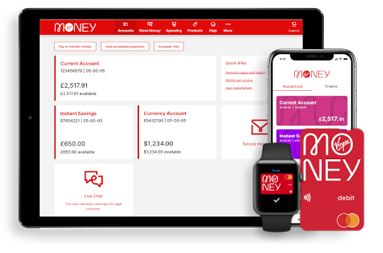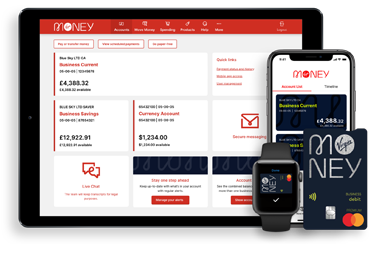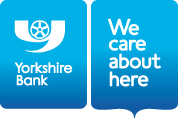-
Login
More Login links
Internet Banking
Business Internet Banking
Started an application?
Other services
Help
-
Register
More Register links
Internet Banking
Business Internet Banking
Other Services
- Our Products More business product links
Bank accounts
- Business current account
- Business choice account
- Switching business accounts
- Compare all business accounts
Savings accounts
Loans and Finance
- All Treasury solutions
Treasury solutions
Help and support
- Online Banking More online banking links
BusinessOnline
- Commercial More commercial business links
Business enquiries
Contact us about a general enquiry.
- Corporate and Structured Finance More corporate business links
Corporate and Structured Finance
SME Cashflow Finance
Unlock your cash flow potential. At Yorkshire Bank we take a flexible approach to business borrowing.
Lending is subject to status and eligibility.
- Our Sector Expertise More sector expertise links
How to choose an accountant
< back to all business news articles
13/03/2018
Unless you’re an experienced accountant or bookkeeper yourself, doing the books and keeping all your records accurate and up-to-date probably isn’t the reason you went into business. Many small business owners leave the task until the weekend. Which makes the job even worse.

As a business owner, you’ll probably be juggling several roles, and even though accounting software now does most of the hard work (reconciling bank accounts and even producing draft profit and loss accounts), accounting software doesn't actually think. This is where the expert comes in.
Preparing end-of-year reports and filing taxes can be complicated. You want to do it right to avoid penalties, or at the very least, taking advantage of any tax savings and financial opportunities. An accountant can not only make sure your business remains compliant (and pay as little tax legally as possible) but also help you analyse your business performance and work with you to achieve your goals.
Aside from records and taxes, your accountant can – and should – become one of your most trusted advisors. They have spent time and have a broad experience learning about financial systems so they can become a valuable mentor. If your business gets into trouble, they’ll be the one to guide you through the minefield and back on track. And if there are opportunities ahead, they can help implement your growth plans.
Finding the right accountant
Choosing wisely is important, as you need an accountant that understands your industry, and understands you. So when you’re doing your research on accountant options, keep the following in mind:
- Experience – ideally you want someone who understands and has experience with small businesses and what tax obligations they have to meet. It’s a good idea to talk to other business owners – word-of-mouth is one of the most effective ways to find a good accountant, especially in your industry networks.
- Audits – should you have to face one, you’ll need your accountant to hold your hand throughout the process, so they can explain what to expect and reduce your stress levels. So it’s important to look for someone who’s been through it before, or can call on colleagues who have.
- Accounting software – you want to choose someone who’ll not only help you purchase the right software for your business, but will show you how to use it. If you use accounting software already, then ensure the accounting firm can support it.
- Good relationship – again, talk to other business owners about the relationships they have with their accountants. You’re looking for someone who’s in it for the long haul, who has an interest in seeing you and your business succeed, and who’s willing to be your advisor year-long, not just when the end-of-year accounts are due.
Tax strategy advice
A good accountant will do all they can to help minimise the amount of tax you have to pay, and will pinpoint any opportunities to either reduce or postpone any tax owed. This could be when to buy fixed assets and claim depreciation (for example the day before the end of your financial year is better than the day after, as you can claim a percentage of depreciation immediately). Or if you can declare income later in the financial year, or if there are any tax breaks for your industry.
So, not only are you looking for someone who’ll prepare your taxes for you, but will also make suggestions and recommendations so you can take full advantage of any tax benefits. This advisory role is essential for any accountant.
Making your choice
Tap into your business network contacts and do your due diligence online so that you can identify accountants who fit the bill for your business and narrow down the search. Approach more than one accountant and meet them. Have some prepared questions that focus on being proactive about saving money, understanding taxes, and focusing on growth.
Just like in any other interview situation, go with your instincts. If you sense a rapport with an accountant and feel confident that they know their stuff, you’re probably right. On the other hand, if your gut’s telling you that the person you’re talking to is complacent and without a real sense of involvement, then strike them off the list.
Summary
You’re looking for someone who is experienced, capable and understanding. You should feel that they’ll be a good advisor and are interested in developing a long-term professional relationship with you.
Having the right accountant for your business leaves you free to focus on why you started the business in the first place – to see it grow and become profitable. An accountant is an important part of this, because they’ll keep your finances on track. Which, in the end, is the whole point.
POSTED IN: Payments,Savings,Startup,Cash Flow
SHARE
Related Articles
You are here: Business Banking > Business News > Articles
- About Yorkshire Bank
- About us
- Virgin Money UK PLC
- Media relations
- Careers
- Modern Slavery Statement

Internet Banking has moved
To log into Internet Banking you now need to use Virgin Money Internet Banking. You'll get the same great service and are able to access all your accounts.
Your log in details will stay the same and you can log in directly from the shiny new Virgin Money website.
Continue to Virgin Money Internet Banking
Go to the Virgin Money website
Be Alert
Never tell anyone a token 3 response code, even someone from the bank. You should only input these codes to our secure Business Internet Banking service when you’re sending and making payments. If anyone calls and asks for a token 3 response code or asks you to authorise a payment on the App for fraud checks, hang up and call us on 0800 085 2914 from another line if possible, remember the Bank will never ask you to disclose your security details.
Continue to Virgin Money Business Internet BankingYou can find impartial information and guidance on money matters on the “MoneyHelper” website.
Yorkshire Bank is covered by the Financial Services Compensation Scheme (FSCS), Find out more.
